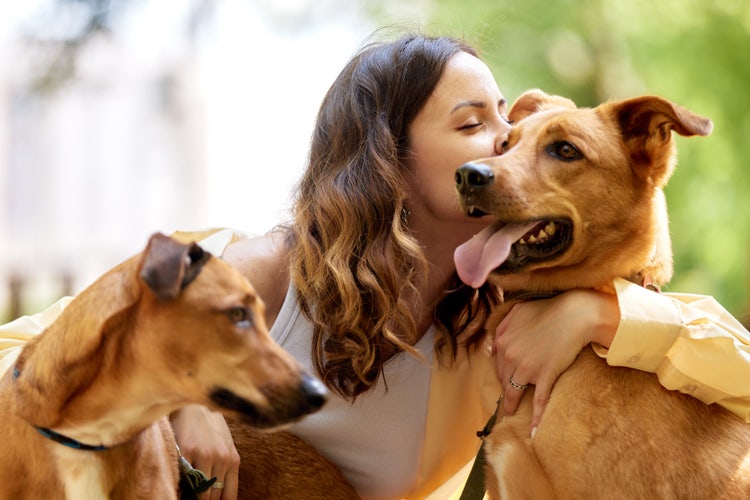
Training Your Newly Adopted Dog: A Health-Focused Guide for Pet Owners
Share
Bringing a dog into your home is a wonderfully fulfilling journey, yet training a newly adopted dog can present its own unique challenges, particularly for health-conscious pet owners. Grasping the fundamentals of dog training while prioritizing your dog's health will create a seamless transition for both you and your new companion.

Recognizing Your New Dog's Needs
Each dog comes with its own distinct personality, set of requirements, and behaviors. When embarking on the journey of training a newly adopted dog, its important to consider their previous experiences. Many rescued dogs have faced significant life changes and might need extra patience and empathy.
Health is a top priority for every pet owner, so ensuring your furry friend is in good shape before starting any training regimen is crucial. A visit to the vet can help identify any health-related concerns that might influence your dog's learning capabilities. For details on adopting a healthy pet, take a look at City of Sacramento's adoption guide.
Establishing a Nurturing Environment
The atmosphere you create is essential for your dog's training and overall happiness. A serene, secure, and affectionate environment helps to alleviate stress and anxiety, allowing your dog to concentrate on mastering new skills.
Consistency remains pivotal in dog training. Establishing a steady routine can help your dog understand what to expect, fostering a sense of safety. Ensure all family members participate in the training process to maintain uniformity in commands and rules.
Fundamental Training Techniques
Begin with essential commands such as sit, stay, and come. Mastering these basic commands not only instills obedience but also reinforces the bond between you and your dog. Utilizing positive reinforcementrewarding your dog with treats or praise for exhibiting good behaviorcan significantly enhance the training experience.
Always remember that patience is key. Training a newly adopted dog demands time and commitment. For more training guidance and tips, explore Dog Training Collars.
Encouraging Socialization
Socializing your dog is an essential part of training, particularly for health-minded pet owners. Gradually introduce your dog to different environments, people, and other pets. This exposure helps mitigate anxiety and contributes to a well-rounded personality.
Joining a local dog training class can be a great way to provide socialization and gain expert advice. Additionally, dog parks offer superb opportunities for your dog to interact with others and expend some energy. For further insights on socialization, check out Cleaning Dog Collars.
Emphasizing Health and Nutrition
For health-conscious pet owners, nutrition is the foundation of your dog's health. Providing a well-balanced diet helps keep your dog's energy levels up, bolsters their immune system, and supports a shiny coat and healthy skin.
Consult your veterinarian to determine the best diet based on your dog's age, size, and breed. Remember, a healthy dog will be more open to training and learning.
Physical Exercise and Mental Stimulation
Regular exercise is crucial for both the physical and mental well-being of your dog. A well-exercised dog is less prone to develop behavioral issues due to boredom or excess energy.
Incorporate daily activities like walks, fetch, or agility exercises into your routine. These interactions not only maintain your dogs fitness but also deepen your bond. For more exercise suggestions, visit Designer Dog Accessories.

Frequently Asked Questions
How long does it take to train a newly adopted dog?
The duration of training varies based on the dogs age, breed, and prior experiences. Consistent training paired with patience is crucial for success.
What if my adopted dog is fearful or anxious?
If your new dog displays signs of fear or anxiety, create a nurturing and calm environment. Gradual exposure to new situations along with positive reinforcement can help build their confidence.
Should I train my newly adopted dog independently or seek professional help?
Many pet owners successfully train their dogs at home using basic methods. However, if you face difficulties, consulting a professional trainer can offer valuable assistance and direction.
This article contains affiliate links. We may earn a commission at no extra cost to you.
